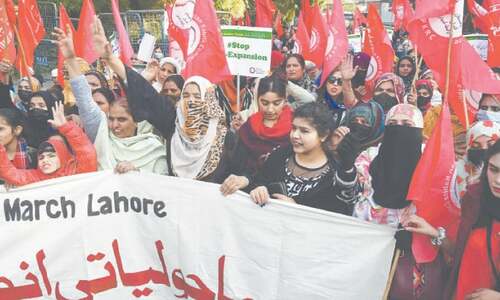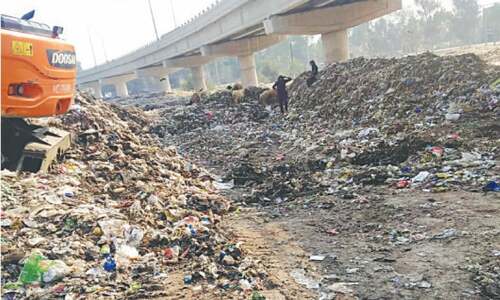AMMAN: An estimated 600,000 people have been “tricked and trapped” into forced employment in the Middle East, many of them also sexually exploited, the UN’s labour agency said on Tuesday.
The International Labour Organisation, issuing the findings of a two-year study based on 650 interviews, called for an overhaul of employment practices in the region, notably an end to the “kafala” system of sponsorships.
Kafala, mostly prevalent in Arab states east of Egypt, which are home to more than 12 million foreign workers, requires all such labourers to have in-country sponsors, usually their employers, who are responsible for their visa and legal status.
“Labour migration in this part of the world is unique in terms of its sheer scale and its exponential growth in recent years,” said Beate Andrees, head of an ILO programme to combat forced labour.
“The challenge is how to put in place safeguards in both origin and destination countries to prevent the exploitation and abuse of these workers,” she said at the opening of a two-day conference on the issue in Amman, Jordan.
The 150-page report entitled “Tricked and Trapped: Human Trafficking in the Middle East” was based on research carried out in Jordan, Kuwait, Lebanon and the United Arab Emirates. “Although data is scarce, the ILO estimates that there are 600,000 forced labour victims in the Middle East,” it said.
The study singled out the kafala system, saying it was “inherently problematic” because it created an unequal power dynamic between employers and workers “Reforming the kafala system would significantly improve labour migration governance in this regard,” it said.
The study addressed the issue of animal herders, who are recruited from many Asian countries, including Bangladesh, Nepal and Sri Lanka.
“Several migrants interviewed by the research team had originally been recruited as domestic workers but later were moved on to work as animal herders, taking care of sheep, camels and other livestock out in the desert,” it said.
“The vulnerability to debt was highlighted by the results of a survey of Asian workers in Qatar: Half of those interviewed had paid recruiting agencies a fee before leaving home; the average fee was 2,000 Qatari rials ($550), and some had paid much more, putting themselves deep in debt.” The report said the research team found evidence that showed “the particular vulnerability of Asian and African women migrant workers to deceived and coerced into sexual exploitation.”
Some women who have migrated to work as domestic workers, nurses, teachers or waitresses, “are abducted upon arrival by their freelance agents and obliged to provide commercial sexual services to clients out of private or isolated apartments or villas.”
The study criticised as insufficient laws that “reinforce underlying vulnerabilities of migrant workers” and restrict their ability to terminate employment contracts and to change employers. A lack of inspections kept domestic workers isolated and heightened their “vulnerability to exploitation,” said the study, warning against “the real risks of detention and deportation for workers who are coerced into sex work”.
In male-dominated economic sectors such as construction, manufacturing, seafaring and agriculture, “workers are routinely deceived with respect to living and working conditions, the type of work to be performed, or even the existence of a job at all,” it said.
“Human trafficking can only be effectively tackled by addressing the systemic gaps in labour migration governance across the region,” said Frank Hagemann, ILO deputy regional director for Arab states.—AFP













































Dear visitor, the comments section is undergoing an overhaul and will return soon.